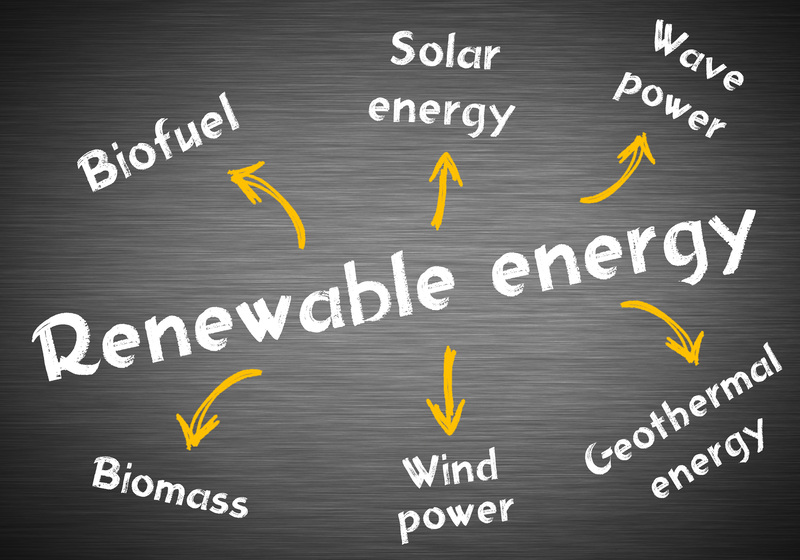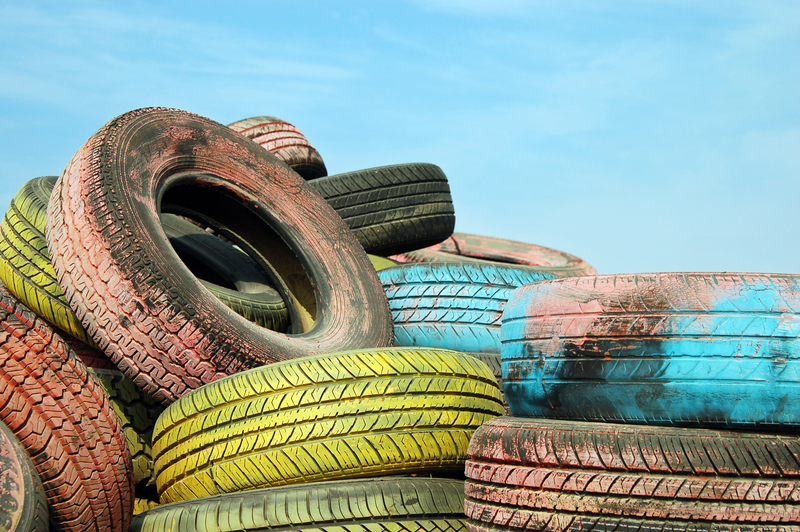From the Kitchen to the Recycling Bin: Eco-Friendly Pot and Pan Disposal
When it comes to setting up a sustainable kitchen, even the smallest actions matter--including how we say goodbye to our old cookware. Rather than sending your used pots and pans to crowded landfills, there are eco-friendly methods to dispose of them, contributing positively to environmental conservation. In this comprehensive guide, we'll explore eco-friendly pot and pan disposal options, discuss how to identify recyclable materials, and provide creative and responsible solutions for minimizing waste.

Why Proper Pot and Pan Disposal Matters
Millions of tons of kitchen waste--including pots, pans, and other cookware--end up in landfills every year. These materials can take hundreds of years to decompose, releasing harmful chemicals and metals into the environment. By choosing green cookware disposal methods, we help conserve resources, reduce pollution, and promote the larger movement toward a zero-waste lifestyle.
- Environmental Impact: Metals and non-stick coatings can leach toxins if left in landfills.
- Resource Conservation: Many cookware items are made from valuable materials like steel, aluminum, or copper, which can be reclaimed through recycling.
- Waste Reduction: Sustainable disposal of pots and pans contributes directly to the reduction of global waste.
What Are Pots and Pans Made From?
Before deciding how to dispose of your cookware, it's essential to identify what materials you're dealing with. Pots and pans are typically made from:
- Stainless steel
- Aluminum
- Copper
- Cast iron
- Non-stick coatings (e.g., Teflon)
- Ceramic or enamel finishes
*The type of material plays a significant role in determining your cookware's best final destination.*
Signs Your Cookware Needs to Go
While it may be tempting to hold onto your favorite frying pan, outdated or damaged cookware can be unhealthy or unsafe to use. Watch for these signs to determine when it's time for responsible pot and pan disposal:
- Severely scratched or peeling non-stick coatings
- Warped or cracked bases (especially with non-induction pans)
- Corrosion or rust that cannot be cleaned
- Broken, loose, or missing handles
Eco-Friendly Cookware Disposal: Your Options
Fortunately, there are innovative and sustainable ways to discard old pots and pans. Here's how you can make a positive impact with your kitchen disposal habits:
1. Reuse and Repurpose
Before you recycle, consider giving your cookware a second life. This not only delays its entry into the waste stream but also inspires creativity in your home and garden.
- Planters: Drill holes in the bottom and use pots and pans as quirky planters for herbs or flowers.
- Storage: Use saute pans for organizing utensils or craft supplies in the kitchen or garage.
- Pet Bowls: Cleaned pans can serve as food or water bowls for pets.
- Decorative Art: With a little paint, worn-out cookware can become wall art or clocks.
Repurposing is a fun, creative, and eco-friendly way to extend your cookware's usefulness before disposal.
2. Donate for Reuse
If your pots and pans are still functional but you simply want an upgrade, donating is a sustainable choice. Many charitable organizations accept cookware in good condition to redistribute to families in need. Consider:
- Local thrift stores (such as Goodwill or Salvation Army)
- Shelters and food banks
- Community centers or soup kitchens
- Online community boards (like Freecycle, Craigslist, or Facebook Marketplace)
Donation helps others while reducing overall waste.
3. Recycle Your Metal Cookware
Metal pans that are too damaged for donation may still have plenty of life--in a different form! Most metal cookware is recyclable, though the process requires some preparation:
- Stainless steel, aluminum, copper, and cast iron can frequently be recycled at a municipal recycling facility or scrap metal center.
- Remove non-metal components (plastic handles, lids with glass, etc.) before recycling, as these can contaminate the batch.
- Check your city's recycling regulations--some curbside programs do not accept cookware due to size, but dedicated recycling centers or scrap metal dealers often do.
Always call ahead or check online to ensure your local center accepts household metal cookware.
4. Recycle Non-Stick or Coated Pans Carefully
Non-stick (Teflon or PTFE-coated) pans present a particular challenge, as the coating cannot be recycled with regular metal. Here's what you can do:
- Contact the manufacturer--many brands now offer take-back or recycling programs for their non-stick cookware.
- Specialized recycling programs--search for e-waste or product stewardship sites in your area.
- Remove as much non-metal as possible, including plastic, silicon, or coatings--scrap yards may accept the underlying metal in some cases.
Never dispose of coated pans in your standard recycling unless specifically advised by your municipality, as this can contaminate the recycling stream.
5. Proper Disposal of Ceramic and Glass Cookware
Ceramic and glass cookware can't usually be recycled with everyday glass like bottles and jars. Instead:
- Contact your local transfer station or landfill--they may accept ceramics in construction or aggregate waste streams.
- Some specialty recycling centers accept ceramics for reuse in road or tile construction.
- If not, consider creatively reusing as garden edging, drainage, or mosaic art projects.
Never mix cookware ceramics or glass in your blue bin unless approved by your waste program.
How to Prepare Pots and Pans for Recycling
To ensure your eco-friendly pots and pans disposal is successful, follow these prep steps:
- Clean thoroughly: Remove food residue and oils to prevent contamination.
- Separate materials: Detach handles, knobs, or lids made from plastic, wood, or glass.
- Sort by type: Group steel, aluminum, copper, or cast iron items for easier processing at recycling centers.
- Bundle small items: If permitted, tie smaller pans together to ensure they aren't missed on the sorting line.
Proper preparation maximizes the chances that your old cookware will be effectively recycled and transformed into new resources.
Finding a Recycling Center or Drop-Off Location
Not all recycling facilities accept every type of cookware, especially those with special coatings or mixed materials. Use these strategies to find a responsible destination for your used pots and pans:
- Check with your municipal recycling program--most provide guidance on their websites or via customer service lines.
- Locate a scrap metal dealer in your area--many pay for metal by weight and accept bulk cookware.
- Try national resources like Earth911 or RecycleNation to search by zip code and item type.
- Look into manufacturers' take-back programs if you own branded cookware from companies like Calphalon, GreenPan, or All-Clad.
Bonus: Upcycling Ideas for Old Pots and Pans
Before you recycle, why not get creative? Here are some fun ways to upcycle old cookware:
- Turn cast iron into a rustic wall sconce or candle holder
- Create an herb garden with different-sized pots and pans
- Make kitchen-themed clocks from round frying pans
- Craft bird feeders or outdoor planters using saucepans
- Form hanging pot-racks or wall storage with sturdy baking trays or wire baskets
Upcycling not only reduces waste but also adds a personal, sustainable touch to your home or garden!
Frequently Asked Questions: Pot and Pan Recycling
Can I put old pots and pans in my curbside recycling?
Most curbside recycling programs do not accept bulky metal items like pots and pans. These can damage sorting equipment or be missed in the recycling process. Always check with your local recycling center for correct procedures.
What if my cookware has Teflon or another non-stick coating?
Pans with non-stick coatings should not be put in standard metal recycling. Look for take-back programs, donate if the coating is in good condition, or ask specialized recycling facilities if they accept coated metals.
Are lids and handles recyclable too?
Metal lids typically are recyclable, but plastic, glass, or wooden handles and knobs are not. These should be separated and disposed of appropriately based on the material type.
Is there a way to repair old pots and pans instead of disposing of them?
Minor repairs (like tightening screws or cleaning with baking soda and vinegar) can extend the life of some cookware. However, cracked, warped, or heavily deteriorated cookware is best replaced for safety reasons.
What about large appliances like slow cookers or electric skillets?
These are considered e-waste and require separate recycling at an electronics or appliances recycling center.

How to Avoid Waste: Choosing Sustainable Cookware for the Future
*The best eco-friendly pot and pan disposal begins with smart purchasing choices.* Consider these tips when investing in new cookware:
- Opt for recyclable materials: Stainless steel, cast iron, or pure aluminum pans are easy to recycle and long-lasting.
- Avoid unnecessary coatings: While non-stick is convenient, it complicates end-of-life disposal.
- Buy high quality: Well-made cookware lasts longer and reduces frequent replacement.
- Look for lifetime warranties: Many eco-conscious brands offer repair or replacement programs.
- Research brands with a sustainability mission: Some companies use recycled metals or offer take-back programs.
Conclusion: Your Role in Green Kitchenware Disposal
Making the shift toward environmentally responsible pot and pan disposal is a small change with big rewards. By committing to creative reuse, thoughtful donation, correct recycling, and sustainable purchasing, you help create a cleaner planet and a healthier home. Every pan kept out of a landfill is a win for the environment.
Remember: *From the kitchen to the recycling bin*, every step you take to dispose of old cookware responsibly contributes to a brighter, greener future. Now's the time to take action--gather your old pots and pans, choose the best eco-friendly method, and help make landfill waste a thing of the past!
